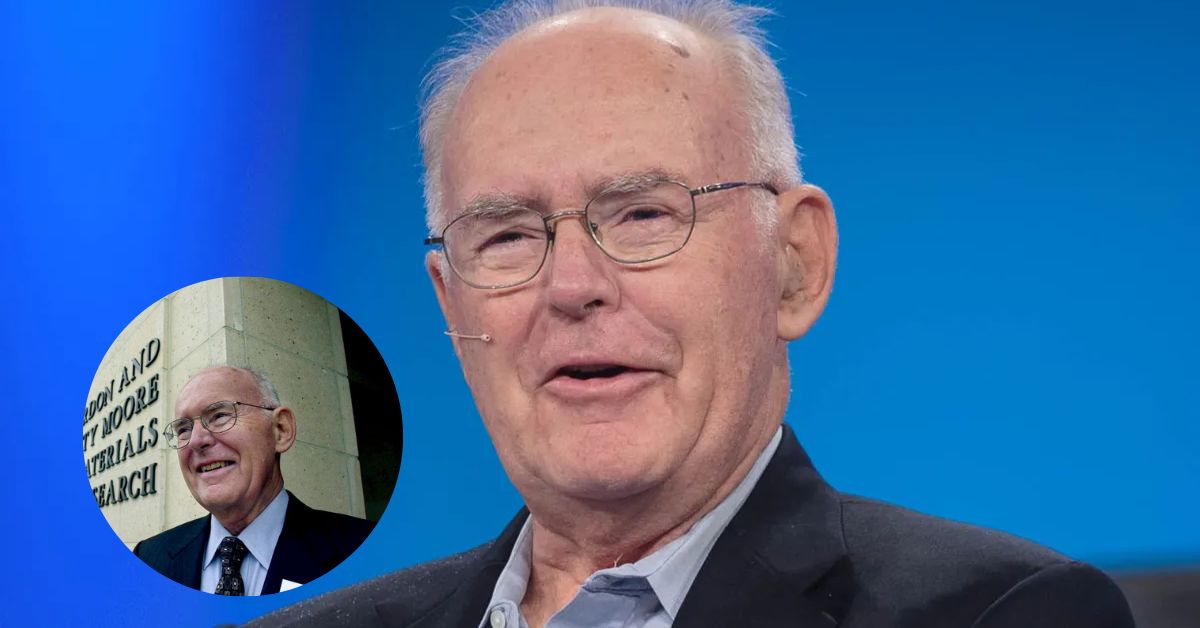Gordon Moore De@th: Co-founder of Intel Has Passed Away at 94
Gordon Moore, the co-founder of Intel Corp., who predicted in 1965 that engineers would rapidly increase the processing power of computer chips, has passed away. He was 94. bIntel and the Gordon and Betty Moore Foundation confirmed Moore’s de@th on Friday (March 24, 2023), saying he passed away at his Hawaii residence.
The Ph.D. chemist and physicist Gordon Moore made the now-famous observation that became “Moore’s Law” three years before he co-founded Intel in 1968. It was included in a group of pieces on the future written by specialists in several disciplines for the defunct Electronics magazine.
The forecast, which Moore claimed he mapped out on graph paper based on what had been occurring with chips at the time, stated the capacity and complexity of integrated circuits would quadruple every year.
Moore’s observation was explicitly about the doubling of semiconductor transistors. But it has been extended to include other electronic devices like hard drives and computer monitors, with the idea that every 18 months, a new generation of products renders the older ones obsolete.

It set the bar for development and innovation in the tech sector. “It’s the human spirit. It’s what made Silicon Valley,” Carver Mead, a retired California Institute of Technology computer scientist who coined the term “Moore’s Law” in the early 1970s, said in 2005. “It’s the real thing.”
After retiring from Intel, Moore and his wife founded the philanthropic Gordon and Betty Moore Foundation to support local San Francisco Bay Area causes in science, medicine, conservation, and patient care. Since its inception in 2000, it has given over $5.1 billion to good causes.
Foundation president Harvey Fineberg said- “Those of us who have met and worked with Gordon will forever be inspired by his wisdom, humility, and generosity.” Moore was a 1929 California native. He enjoyed playing with chemical sets when he was a kid.
He worked briefly as a researcher at Johns Hopkins University after earning his Ph.D. from the California Institute of Technology in 1954. He got his start in the microchip industry when he went to work with William Shockley, who received the Nobel Prize in physics in 1956 for developing the transistor. After working at Shockley Semiconductor Laboratory for less than two years, Moore and seven of his coworkers decided to leave because they were unhappy with the company’s management.
If you haven’t heard, many well-known people have recently died. In case you’re curious about what led to their de@ths, check out the articles we’ve compiled:
- When did Mario Molina Die… What Cause of Nobel Prize Winner’s Death?
- Lance Reddick Cause of Death: What Happened to Actors “The Wire” and “John Wick”?
The “traitorous eight,” as they were later dubbed, laid the groundwork for the renegade mentality of Silicon Valley, where engineers who disagreed with their colleagues would not hesitate to become rivals. Fairchild Semiconductor, founded by Shockley defectors in 1957, was an early manufacturer of integrated circuits, a transistor type.
The first computers used by astronauts in space were built around chips supplied by Fairchild. In 1968, Moore and Robert Noyce, one of the eight engineers who had departed Shockley, went out on their own again. They started Intel (an acronym for “integrated electronics”) with $500,000 in startup cash from themselves and venture financier Arthur Rock.
Moore took over as Intel’s CEO in 1975. While he stepped down as CEO in 1987, he remained chairman for another decade. From 1997 until 2006, he served as chairman emeritus. In 1990, President George H.W. Bush awarded him the National Medal of Technology; in 2002, President George W. Bush presented him with the Presidential Medal of Freedom.
Moore was known for his humility despite his fame and fortune. A “lucky guess that gained a lot more exposure than it deserved,” he said of Moore’s Law in 2005. His children Kenneth and Steven, as well as four granddaughters, and Betty, his wife of 50 years, all survive him.
( Source Link )

